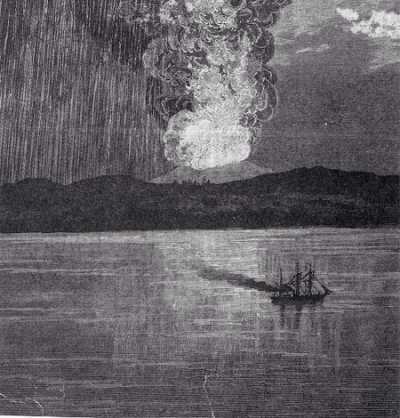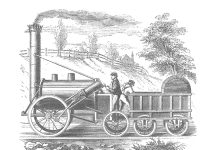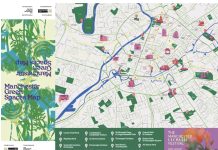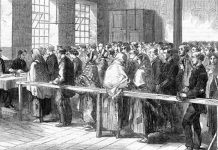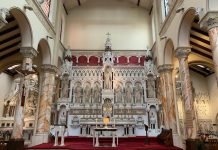It was two months before the final defeat of Napolean on the battlefield of Waterloo, but on the faraway Indonesian island of Sumbawa an event happened whose recuputions would have profound effects in Manchester.
Tambora wasthe site of the most devastating volcanic eruption on Earth in thousands of years two hundred years ago this week.
The death toll was around 100,000 people killed from the thick pyroclastic flows of lava, the tsunami that struck nearby coasts, and the thick ash that blanketed Southeast Asia’s farmlands, destroyed crops, and plunged it into darkness for a week.
But its effects were to carry around the world, the following year 1816 was christened the year without a summer as the ash and smoke catapulted into the atmosphere would disrupt the world’s weather systems.
It changed the Indian Monsoon winds bringing drought and a new and deadly strain of cholera, Snowstorms swept the East Coast of the United States in June and in China there was devastating famine as crop after crop of rice was lost to bitter winds and flooding rains.
In Europe the summer of 1816 was cold and wet, crops failed either due to lack of sunshine or frost and food prices rose and in Britain, a population expecting a war dividend after nearly twenty years fighting France saw their hopes of economic and political freedoms dashed.
The historian John Post, in a study of Tambora’s effects published in 1977, “The Last Great Subsistence Crisis in the Western World”, held that the volcano reshaped European politics. The disorder that sprang up in the bad weather from 1816 to 1818, and its subsequent repression, created a climate for authoritarian rule that held sway until the middle of the century.
With grain in short supply, the effect of the protectionist Corn Laws inflated the price of bread, and combined with thousands of soldiers returning with little chance of employment, a revolutionary fervour would take hold across the country. for the first time the working man gained a sense of political awareness.
Manchester and the North West would be one of the centres of this, protesting for political and economic reform in a series of events that would culminate in Peterloo in 1819. But those actions would also lead to the 1832 reform Act, the first political representation of the ordinary person and the movement and eventual repeal of the Corn Laws in a movement with its home on Peter Street.
The new strain of cholera would reach the shores of Europe and outbreaks in Britain would eventually lead to the drive for better public health and sanitation in our English cities with Manchester playing a huge role,
There was one consolation though at least for literature. Mary Shelley, her husband, the poet Percy Bysshe Shelley, and poet Lord Byron were on vacation at Lake Geneva in that non summer. While trapped indoors for days by constant rain and gloomy skies, the writers described the bleak, dark environment of the time in their own ways. Mary Shelley wrote Frankenstein, a horror novel set in an often stormy environment. Lord Byron wrote the poem Darkness, which begins, “I had a dream, which was not all a dream. The bright sun was extinguish’d.”

